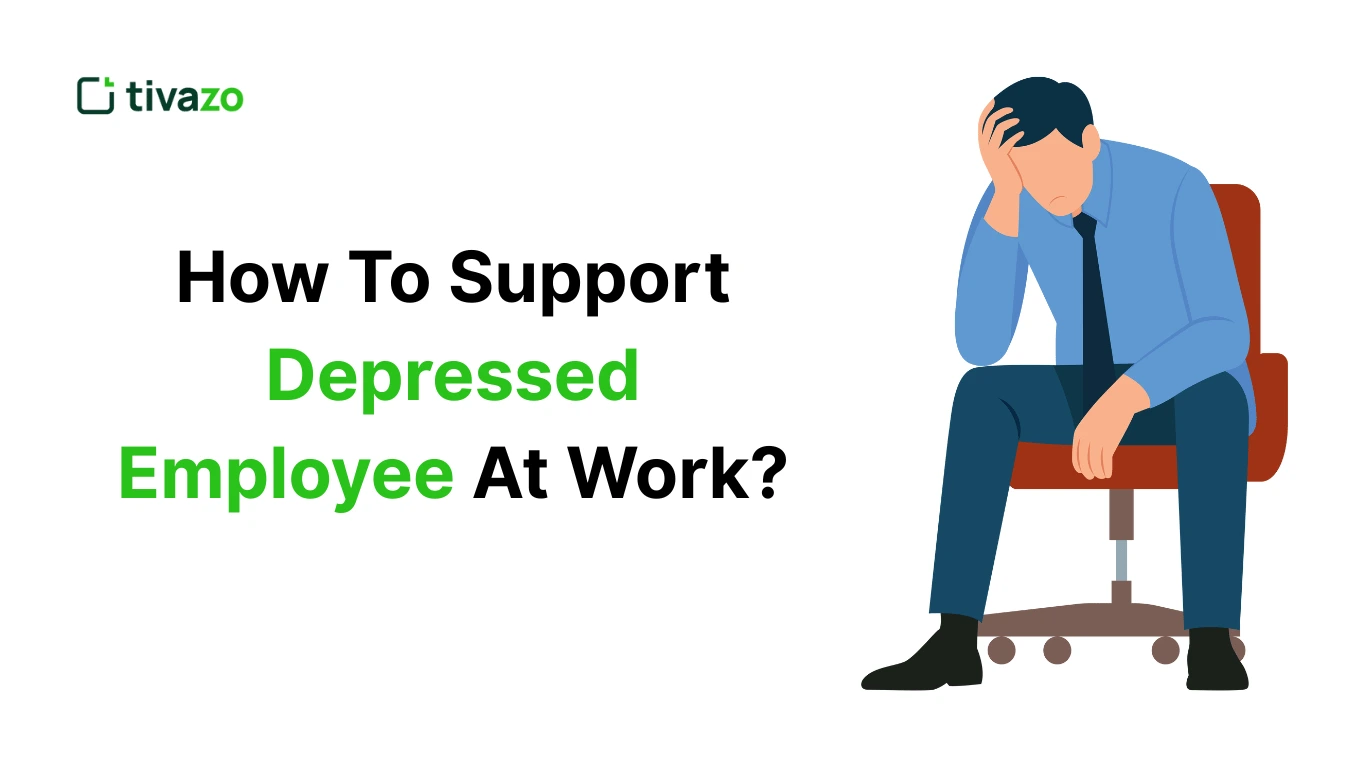To be appreciated is more than being thanked. It’s that profound, emotional recognition, the act of saying to yourself and admitting that what you do, who you are, and your efforts have meaning. Scientists say it is a blend of recognition, respect, and emotional validation.
At a fundamental level, feeling appreciated stimulates our powerful neurochemicals: dopamine, the reward chemical, and oxytocin, the bonding hormone. When people truly value your contribution, your brain experiences a similar reaction to being in love or trust. That’s how crucial appreciation is.
Whether it’s a co-worker saying, “That presentation was solid,” or a friend texting, “I’m so thankful for you,” these moments implant themselves and keep us emotionally afloat.
Key Highlights:
- Why Feeling Appreciated Is a Human Need
- Signs You’re Not Feeling Appreciated
- 7 Ways to Feel More Appreciated in Everyday Life
- How to Express Your Need for Appreciation
- How to Build a Culture of Appreciation Around You
Why Feeling Appreciated Is a Human Need
Appreciation, surprise, is not optional to our emotional survival: It is hardwired in. According to Maslow’s hierarchy of needs, esteem (which includes being valued at work and recognition) is fundamental to motivating and fulfilling the human spirit.
The significance of gratitude is that it nourishes your sense of fit and worth in the world. It’s not vanity—it’s psychology.
Without a sense of purpose, people suffer from burnout, loneliness, and despair. With it, they thrive. They take the lead, they show up, and they give more.
Signs You’re Not Feeling Appreciated
Sometimes lack of thanks doesn’t shout — it whispers. You start to feel it in small ways, small slights: a forgotten thank-you, a little bit of silence, a nagging sense that your presence doesn’t matter. After a while, these incidents add up, and it begins to show in your confidence, your energy levels, and your overall happiness.
Here are the most obvious signs you’re not feeling appreciated:

- Emotionally overlooked
- Silenced contributions
- Social exhaustion
- Doubting self-worth
- Feeling invisible
These emotional effects of being ignored can range from frustration, resentment, to stress, or just feeling overwhelmed.
What Happens When You’re Constantly Not Feeling Appreciated
When feeling appreciated is missing for a long time, it quietly starts to affect your mental and emotional well-being. You might find yourself constantly pushing harder, taking on more responsibilities, or saying yes to everything, just to be seen or noticed. This leads to chronic stress because you’re giving more than you’re receiving. Over time, this imbalance creates burnout, where even small tasks feel exhausting.
You may start pulling back from people or environments that once felt safe, causing a sense of disconnection. Worst of all, you might begin to question your worth, thinking the lack of appreciation means you’re not good enough. That’s why learning how to deal with feeling appreciated isn’t just motivational talk—it’s a real skill that protects your emotional health.
7 Ways to Feel Appreciated in Everyday Life
You don’t have to wait for others to magically notice you. Here’s how to proactively invite appreciation into your life:

- Name Your Needs Clearly
You may be the person who just really likes to work on holidays and has even picked off any time-around-the-holidays-holidays because you’d rather work then because you know there are a bunch of people who’d rather not and grew up expecting to work then and oh isn’t it nice to make some extra money to shop in February? So, monetary or not, it’s important to declare your needs explicitly be it whether you feel most loved by kind words, acts of service, or to simply be listened to. You also help people to learn how to value and support you in the way that means the most when you put out there directly what means the most. - Create Appreciation Rituals
Rituals forge connection and transform appreciation into a reflex. For instance, to initiate a weekly “gratitude swap” with family, friends, or colleagues — in which people share something they genuinely appreciate about someone else — introduces a regular beat of positive recognition. These things do more for your relationships than your communication ones ever will, and they help create a culture where appreciation is not the exception but the norm. - Track Your Wins
It can be hard to see your successes, particularly when you don’t receive a lot of external validation. When you keep a daily record of your wins, grand or small, you craft a habit of seeing the evidence of your progress and doing something of value. This practice changes your orientation from dependence on other people for validation to inwardly appreciating yourself, and in the process, fuels your confidence and motivation. - Use Self-Affirmations
You are strengthening your self-worth and developing emotional intelligence when practiced consistently and regularly through positive self-talk. Frequent reminders of your special talents, efforts, and qualities are an excellent self-esteem-maintaining strategy. Even when others don’t give you the recognition, these affirmations help keep you grounded and sturdy. - Celebrate Micro-Moments
It doesn’t always have to be a big, over-the-top gesture to be meaningful. Similarly, small actions — a smile after you help someone, a curt nod, or a short thank-you — count equally. Noticing these micro-moments can help you identify that you are seen and valued, even if only in small ways. - Set Emotional Boundaries
Guarding your emotional bandwidth is everything. If you are giving and loving and people don’t appreciate or acknowledge you, your spirit can become depleted.” Establishing emotional boundaries is just learning when to say no, when to step back, and when to shift your focus to people and relationships that authentically value you. Boundaries aren’t about separating from others so much as the opposite: respecting that you are worth your respect. - Reciprocate Appreciation
Appreciation is a two-way street. By consistently and genuinely expressing these things to others through praise, kind gestures, or even just a simple “thanks,” you feed into an environment nurtured by gratitude. Not only does this help you build your connections with others, but it also helps others do the same for you.
How to Feel Appreciated at Work Without Begging for Validation
Feeling appreciated at work is something that can, at times, feel out of reach, particularly when acknowledgement is hard to come by. But you need not beg for validation to get recognized or appreciated. One good way is to solicit feedback often, wording the request in a positive way — “what’s one thing I did this week that made your job easier?” for example.
That quickly evokes the search for positive recognition without demeaning itself. Chalmers also suggests documenting your accomplishments in a “victory folder,” a repository for emails, compliments, or messages written about your successes; bring this out during performance reviews or team meetings so it’s difficult for your accomplishments to be ignored. It’s equally valuable to foster positive relationships at work, so get in the habit of genuinely complimenting others—gratitude is infectious, and if you appreciate your co-workers, they’re more likely to appreciate you.
Finally, as your biggest cheerleader, remind yourself that what you do has worth, even if no one tells you so to your face today. This mentality helps keep you where you need to be in terms of pride and self-respect, and keeps stacking up your confidence and belief in what you’re doing.
How to Express Your Need for Appreciation (Without Sounding Needy)
Making statements about your need to be admired can be a slight risk, but when executed well, it’s a winning strategy. Instead of sounding desperate, make authentic and confident statements such as ‘I feel most alive when I know I made an impact. What aside from that, stuck?” or “When you thanked me for helping you last week, it worked. I just wanted to say that, and it meant a lot.” These dialogue invites a culture of gratitude grounded in transparency and courage, which in turn makes real recognition more free-flowing and comfortable for all.
The Psychology Behind Feeling Appreciated
The psychology that drives the feeling of appreciation is based on how our brains react to being acknowledged. Research from organizations such as Gallup, Harvard, and Berkeley has all made research conclusions that find people feeling appreciated at work or within their relationships are twice as engaged and motivated. Consistently recognizing employees in the team enlarges and boosts morale, while it can also cut your employee turnover rate by 31% showing appreciation creates loyalty and satisfaction.
Biologically speaking, when we feel appreciated, our stress hormone cortisol decreases, leading to reduced anxiety and overall better feelings. It is this marriage of emotional and physical benefits that explains why appreciation itself is not just a nice thing to do, but a critically important component of our health and motivation.
Feeling Valued in Relationships: Romantic, Family, and Friends
Feeling valued is not only necessary to make us feel good at work; it’s just as important in our relationships with romantic partners, family, and friends. So when there’s no appreciation in these interactions, it can result in feelings of alienation, loneliness. Learning to feel valued and feeling appreciated in these interactions contributes to trust and more intimate attachments. It generates a place where everyone feels like they’re visible, valuable, and a priority. Below are some key ways to foster that sense of value in your closest relationships:
How to feel valued in a relationship:

- Communicate your love language
- Acknowledge effort openly
- Don’t normalize being taken for granted
Appreciation keeps emotional intimacy alive. It says, “I see you. You matter.”
Can You Feel Appreciated Without External Validation?
Yes, you can feel valued without needing validation, and this is a form of emotional independence. It starts with taking small steps every day, such as gratitude journaling to write down three things you are proud of, as one way to focus on your accomplishments. How we talk to ourselves and the way we look at progress, rather than perfection, can change our mindset about our body and overall health and wellness
Learning to love yourself when others don’t helps you to build resilience and a deeper sense of contentment that doesn’t rely on other people’s acknowledgment. This well of self-praise is the rock your confidence (and happiness) is built on , and what keeps you going when you get little or no accolades from outside sources.
How to Build a Culture of Appreciation Around You
Developing a culture of appreciation around you doesn’t just raise people up; it can transform individuals within teams or communities. Simple things like initiating meetings with shout-outs or acknowledgments are ways to inspire everyone to be more aware that they may be appreciating each other more frequently. Setting up “wins walls”—places in a house or office that celebrate achievement and success—can inspire you to continue appreciating others while you practice visible appreciation.
When people regularly appreciate each other, they are establishing a culture in which appreciation becomes the norm and encourages organizations, families, and individuals to appreciate each other more regularly, which improves motivation. All of your manners of celebrating appreciation support this essential daily need for human gratitude and recognition; it strengthens our relationships and makes our workplaces more positive and productive.
How to Turn Appreciation Into a Lifelong Habit
Appreciating other people doesn’t have to be complicated or take long to make part of your daily life. Like all habits, it begins with intention—simply taking a moment to be aware of the effort of yourself and that of others. Thank anyone you can. Celebrate any level of progress, not just outcomes. Write down anything you can collaborate on. Perhaps compliment more. Consider and reflect on the positive in those moments every day.
The more you can appreciate others beyond their roles, the easier it becomes. Over time, your mind will shift from thinking in terms of scarcity to noticing abundance; from isolation to connection. That journey can make all the difference in your life!
Final Thoughts: You Deserve to Feel Seen and Valued
In a world that often values the loudest voices and the biggest accomplishments, it can be easy to forget that our quiet, day in and day out actions often go unnoticed. Feeling appreciated is more than a nice-to-have – it’s an important part of our well-being and happiness. Feeling appreciated adds to our motivation, sends our confidence soaring, and reminds us that every single one of our contributions, no matter how small or unseen, has genuine value.
And even if no one has issued a ticket of acknowledgment today, please remember: your being matters. The thought you put into your job, your family, friends, and even the way you show up is important. Every single day, you should be heard, acknowledged, and valued. You are worthy of thes




